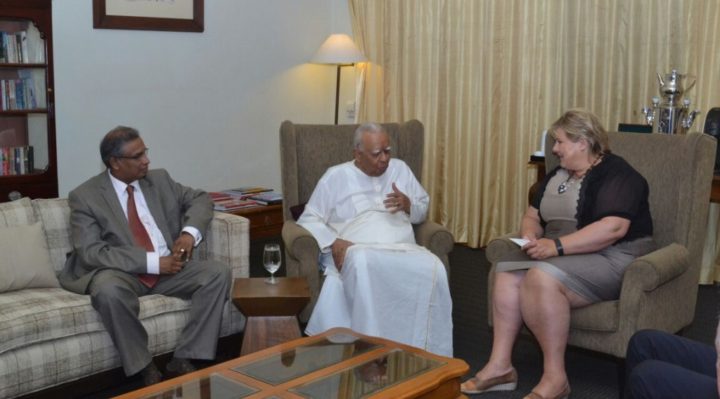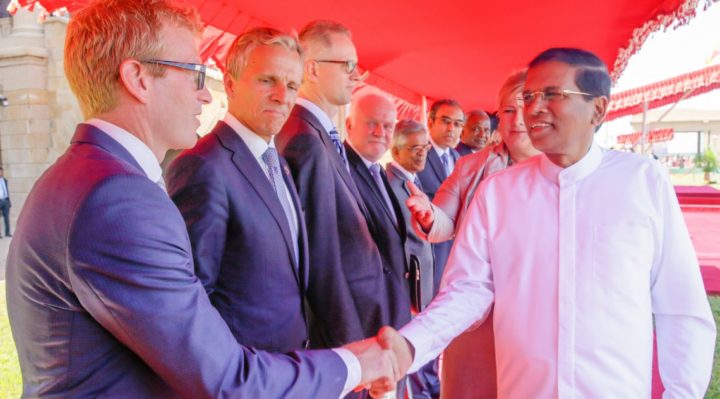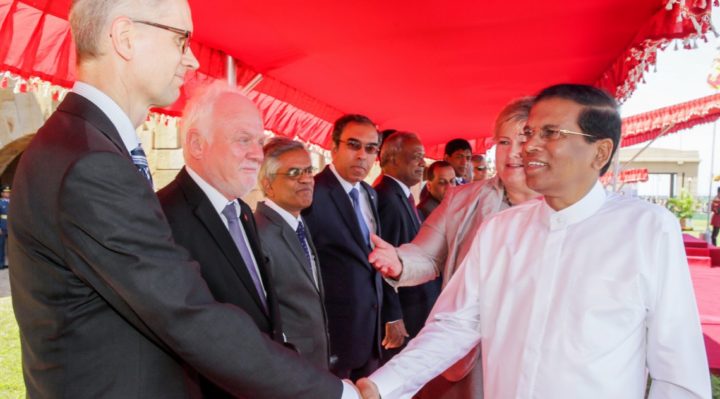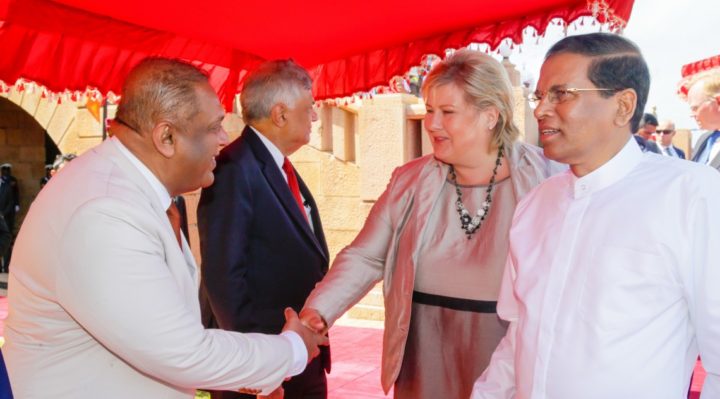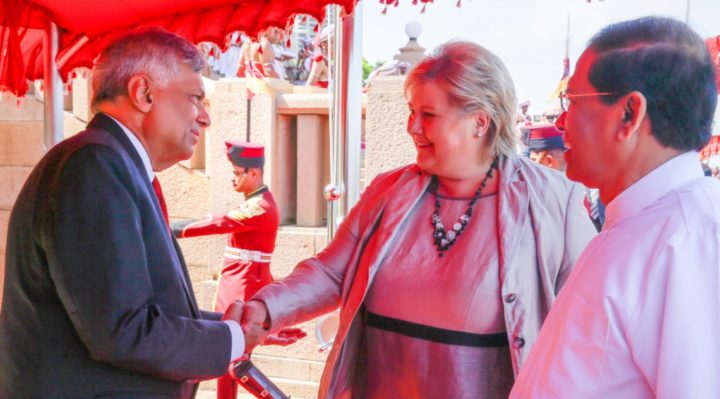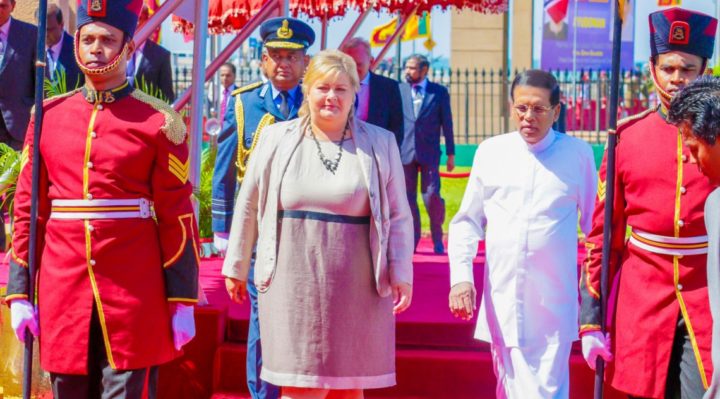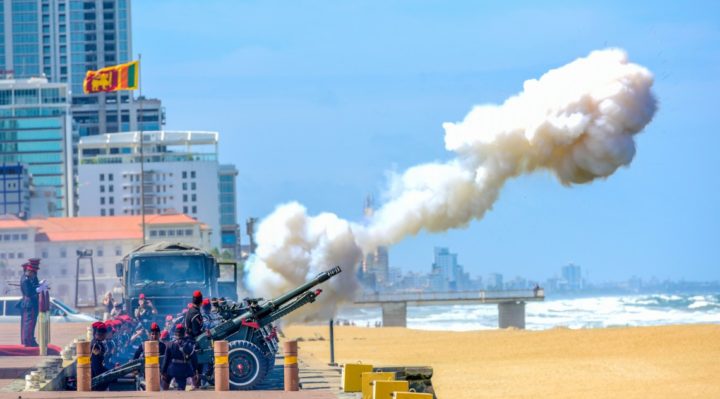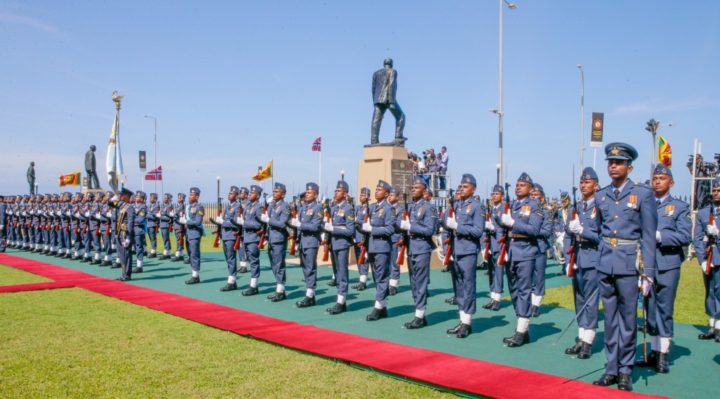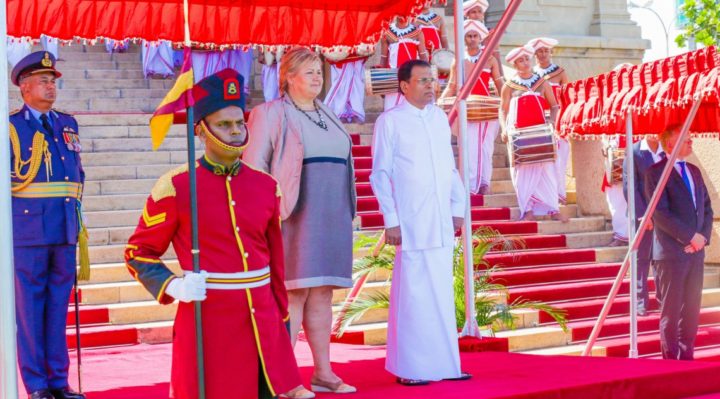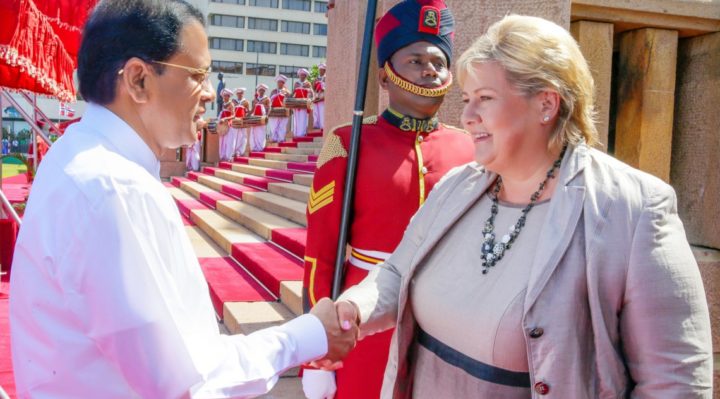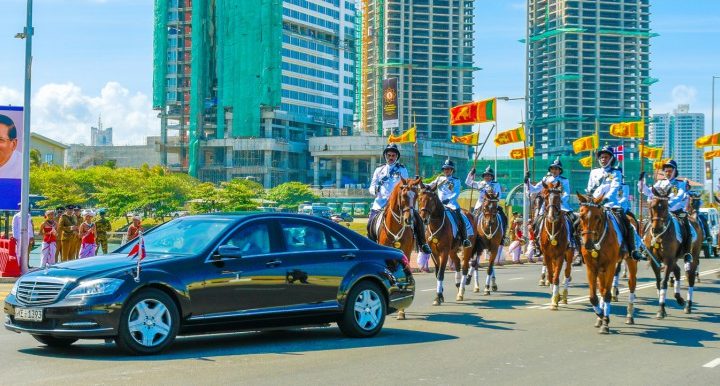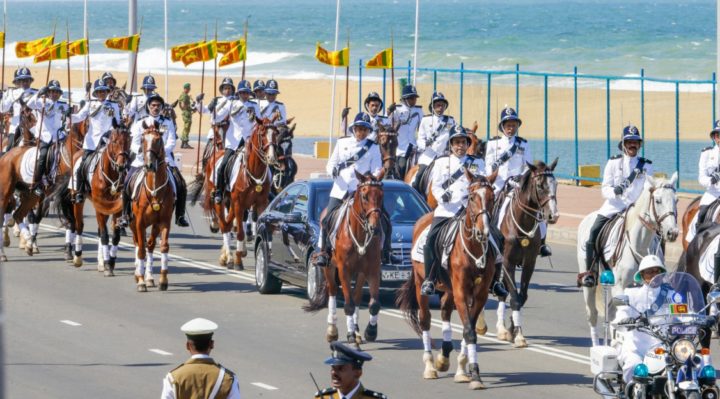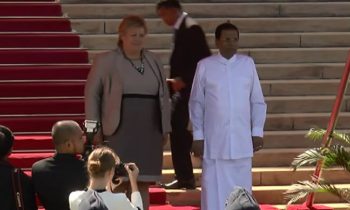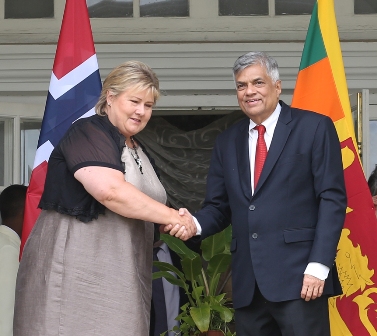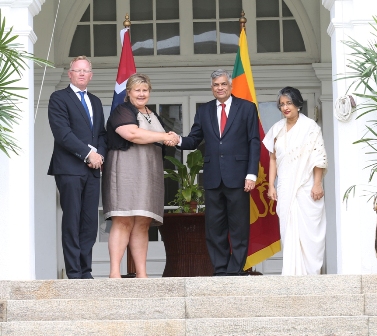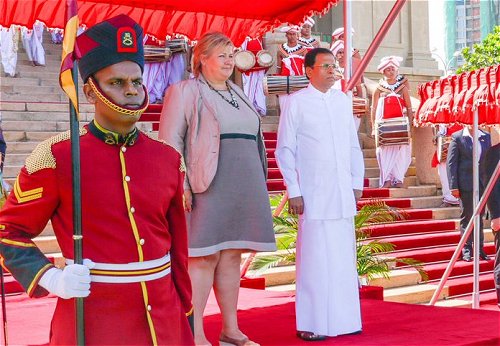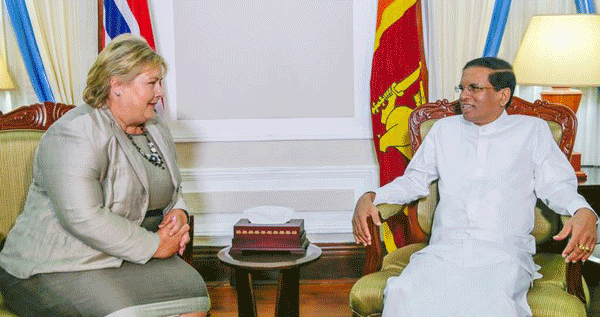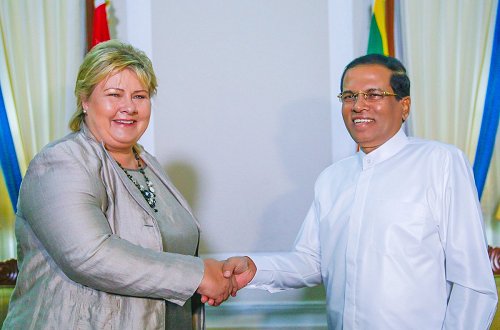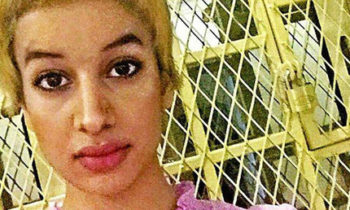 A Norwegian politician was found guilty of kidnapping his own daughter and keeping her locked up in a cell in his house. The man claimed he did it to curb her drug problems as she did not want to receive professional help.
A Norwegian politician was found guilty of kidnapping his own daughter and keeping her locked up in a cell in his house. The man claimed he did it to curb her drug problems as she did not want to receive professional help.
The man, who has not been named, is a member of the Progress Party. He was found guilty by the Aust-Agder District Court in the south of Norway on Wednesday and was given a 120-day jail sentence, suspended for two years. The prosecutors had wanted the man to be sentenced to seven months in prison.
The politician argued that he had no choice but to imprison his own daughter in his home as he had become increasingly worried about her lifestyle. Helped by two friends, he kidnapped her on July 1, 2015.
“I had heard about a grandfather who had done something similar with his grandchild. I did not feel we were getting any help and I saw this as a last resort,” he told the Agderposten newspaper. “I am still fond of her even despite what she has done.”
However, once she was let free after spending three days in the homemade jail, the woman immediately went to the police and reported what her father had done.
“I cannot accept being condemned for trying to save my daughter’s life,” he told Agderposten. “It doesn’t matter if I have to go to jail for this. I have been punished enough already, with everything the drug use has brought to my family,” he added.
The man had some sympathy from the court, which decided not to immediately send him to jail.
“As a mitigating circumstance, the court emphasized that the defendant, as a father, was heartbroken over his daughter’s lifestyle. Moreover, that his daughter would not or could not get the help she needed in his opinion,” a statement from the court read.
This is not the first time that the father has spoken out about his daughter’s drug problems. In May, he told Agderposten he had pleaded with her to get help, but to no avail.
The politician says he will appeal the sentence and was unimpressed about having to pay his daughter 40,000 kroner (US$4,800), which he believes she will just use to buy more drugs.
“Over the last two or three years she has boasted about money. Giving her 40,000 in cash is the same as giving her a lethal injection,” he said.
Source : RT – Daily news

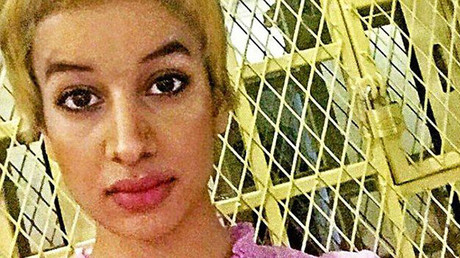
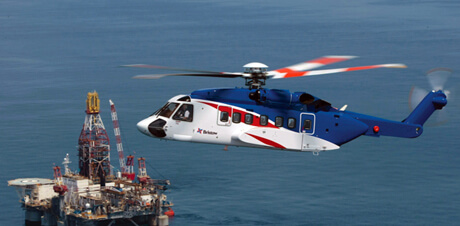
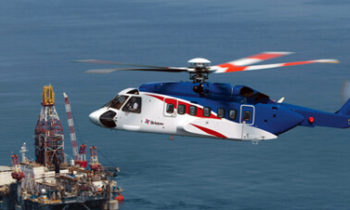 On Aug. 15, 2016, an Antonov 124, one of the largest aircraft in the world, arrived at Bristow’s New Iberia base to transport two Sikorsky S-92s to Norway.
On Aug. 15, 2016, an Antonov 124, one of the largest aircraft in the world, arrived at Bristow’s New Iberia base to transport two Sikorsky S-92s to Norway.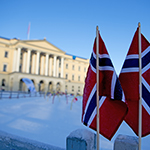
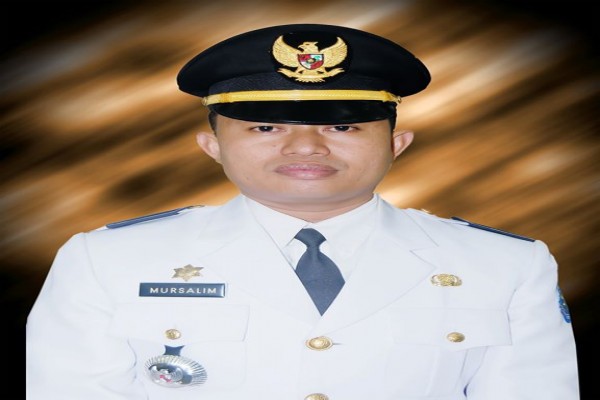
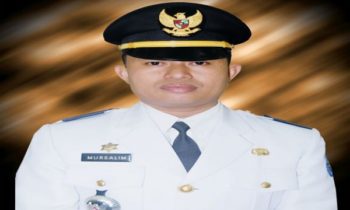 The Norwegian government is offering the latest fishery technology to members of the Indonesia-Indian Ocean Local Government Forum (Indonesia-IOLGF) to optimally utilize the potential of the sea.
The Norwegian government is offering the latest fishery technology to members of the Indonesia-Indian Ocean Local Government Forum (Indonesia-IOLGF) to optimally utilize the potential of the sea.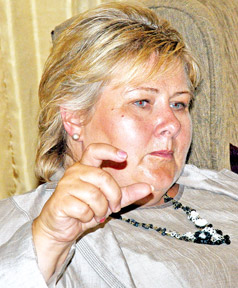
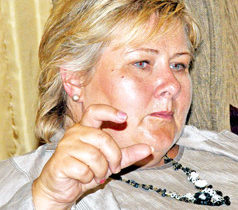 The Norwegian Prime Minister, Honorable Erna Solberg who was in the country delivered the Lakshman Kadirgamar Memorial Lecture 2016 on Friday at the Kadirgamar Institute on, ‘Sustainable Development Goals: Working together for the common good’. Prime Minister Solberg was appointed by The Secretary-General of the United Nations Ban Ki-Moon, to co-chair the UN Sustainable Development Goals committee.
The Norwegian Prime Minister, Honorable Erna Solberg who was in the country delivered the Lakshman Kadirgamar Memorial Lecture 2016 on Friday at the Kadirgamar Institute on, ‘Sustainable Development Goals: Working together for the common good’. Prime Minister Solberg was appointed by The Secretary-General of the United Nations Ban Ki-Moon, to co-chair the UN Sustainable Development Goals committee.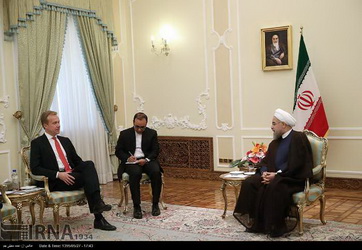
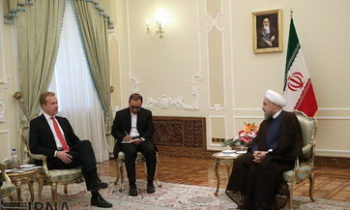 President Hassan Rouhani in a meeting with Norwegian Foreign Minister Borge Brende in Tehran on Wednesday reiterated that Iran and Norway have age-old friendly relations, and called for mutual cooperation in the field of fighting terrorism.
President Hassan Rouhani in a meeting with Norwegian Foreign Minister Borge Brende in Tehran on Wednesday reiterated that Iran and Norway have age-old friendly relations, and called for mutual cooperation in the field of fighting terrorism.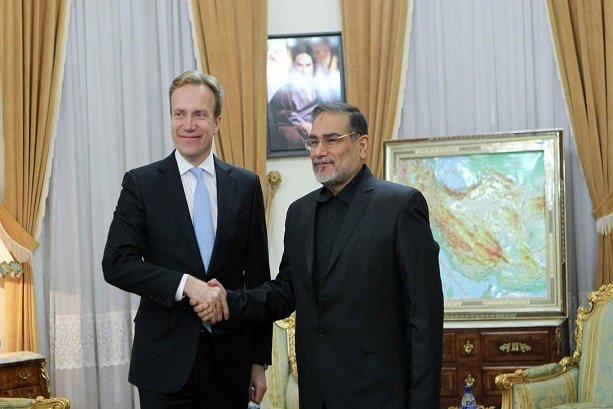
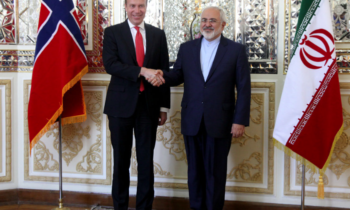 Norway is ready to make the best of post-sanction situation in Iran to further develop cooperation with this strategic country, Norwegian FM Børge Brende said on Wed.
Norway is ready to make the best of post-sanction situation in Iran to further develop cooperation with this strategic country, Norwegian FM Børge Brende said on Wed.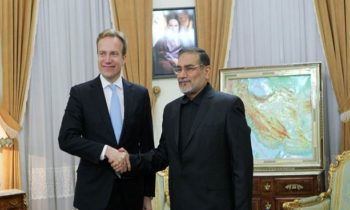 Ali Shamkhani, for his part, noted the proper conditions for extensive cooperation between Iran and Europe, adding “Iran and Norway can increase economic, trade and political cooperation given the ample capacities existing in both countries.”
Ali Shamkhani, for his part, noted the proper conditions for extensive cooperation between Iran and Europe, adding “Iran and Norway can increase economic, trade and political cooperation given the ample capacities existing in both countries.”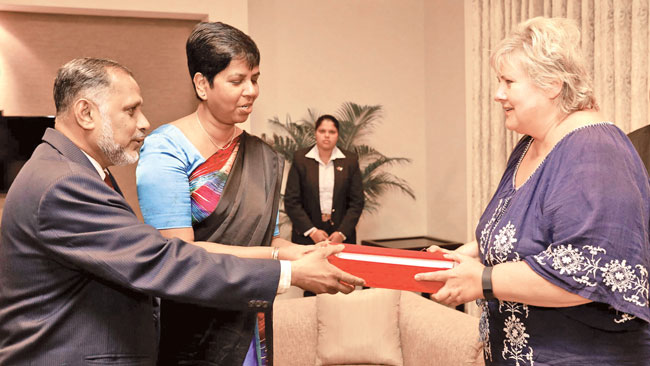

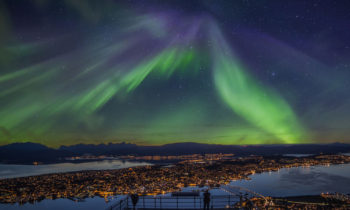 Norwegian children are the most digitally competent in Europe, tying with their Swedish neighbours, but are also European champions in online bullying. So said Telenor Norway, citing a survey called EU Kids Online. Norway is not a member of the European Union (EU). It urged parents to have a talk with their offspring about their digital etiquette during the school summer holidays.
Norwegian children are the most digitally competent in Europe, tying with their Swedish neighbours, but are also European champions in online bullying. So said Telenor Norway, citing a survey called EU Kids Online. Norway is not a member of the European Union (EU). It urged parents to have a talk with their offspring about their digital etiquette during the school summer holidays.
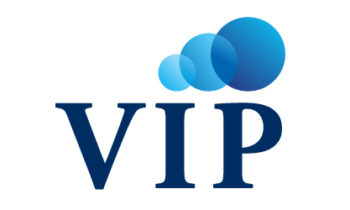 South Korea’s VIP Research& Management Co. came under the spotlight by drawing successive investment from Norway’s sovereign wealth fund, the world’s largest with assets $847.6 billion under management.
South Korea’s VIP Research& Management Co. came under the spotlight by drawing successive investment from Norway’s sovereign wealth fund, the world’s largest with assets $847.6 billion under management.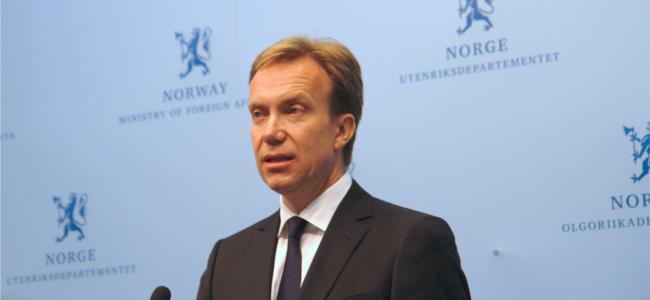
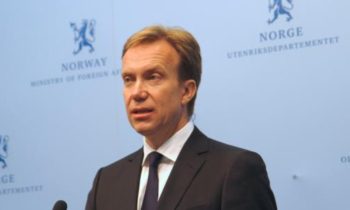 ‘Serious atrocities are being committed against the civilian population in Aleppo. The conflicting parties need to respect humanitarian law and comply with the United Nations’ appeal for a pause in hostilities. Norway supports the humanitarian actors in Aleppo and the surrounding regions. If access is now granted, Norway will increase this support,’ said Minister of Foreign Affairs Børge Brende.
‘Serious atrocities are being committed against the civilian population in Aleppo. The conflicting parties need to respect humanitarian law and comply with the United Nations’ appeal for a pause in hostilities. Norway supports the humanitarian actors in Aleppo and the surrounding regions. If access is now granted, Norway will increase this support,’ said Minister of Foreign Affairs Børge Brende.
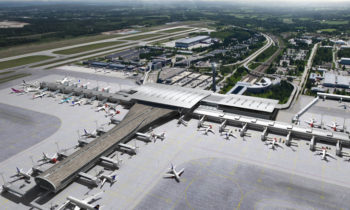 A new development-finance venture that will control banking and other assets worth more than $660 million across sub-Saharan Africa plans to hire as many as 20 people including analysts to manage its investments and help it spend another $300 million on acquisitions.
A new development-finance venture that will control banking and other assets worth more than $660 million across sub-Saharan Africa plans to hire as many as 20 people including analysts to manage its investments and help it spend another $300 million on acquisitions.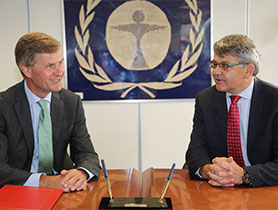
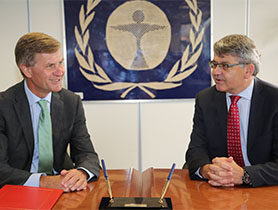 UN Environment and the Norwegian Government signed a framework agreement for development cooperation yesterday that lays new ground for future collaboration in development and environmental sustainability. The agreement was signed by the head of UN Environment, Erik Solheim, and Norway’s Ambassador to Kenya, Victor Conrad Rønneberg.
UN Environment and the Norwegian Government signed a framework agreement for development cooperation yesterday that lays new ground for future collaboration in development and environmental sustainability. The agreement was signed by the head of UN Environment, Erik Solheim, and Norway’s Ambassador to Kenya, Victor Conrad Rønneberg.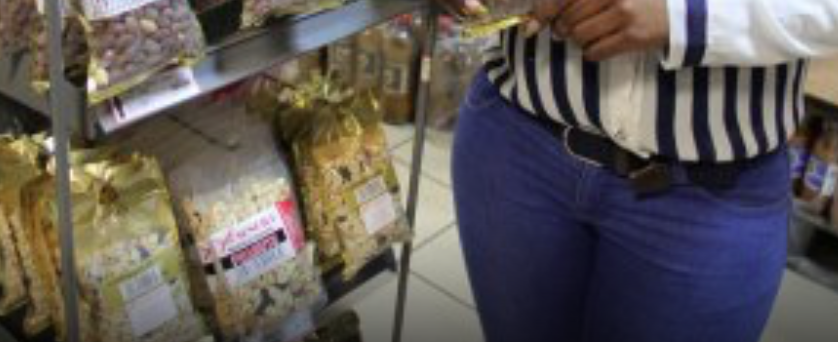
 Associated Foods Zimbabwe Ltd’s US$2 million investment, including a state-of-the-art peanut butter production line, has enabled it to improve its product quality and increase production threefold. The food processor is now angling for the export market. Part of the funds provided by the Norwegian Fund for Developing Countries (Norfund) will contribute towards import substitution in the food-processing sector.
Associated Foods Zimbabwe Ltd’s US$2 million investment, including a state-of-the-art peanut butter production line, has enabled it to improve its product quality and increase production threefold. The food processor is now angling for the export market. Part of the funds provided by the Norwegian Fund for Developing Countries (Norfund) will contribute towards import substitution in the food-processing sector.
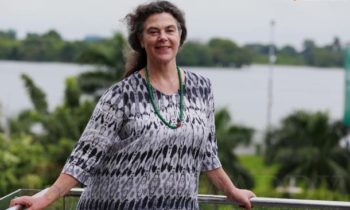 A longtime backer of Burma’s pro-democracy movement, Norway has been a high-profile donor to development and peacebuilding programs inside Burma since the launch of political and economic reforms in 2011.
A longtime backer of Burma’s pro-democracy movement, Norway has been a high-profile donor to development and peacebuilding programs inside Burma since the launch of political and economic reforms in 2011.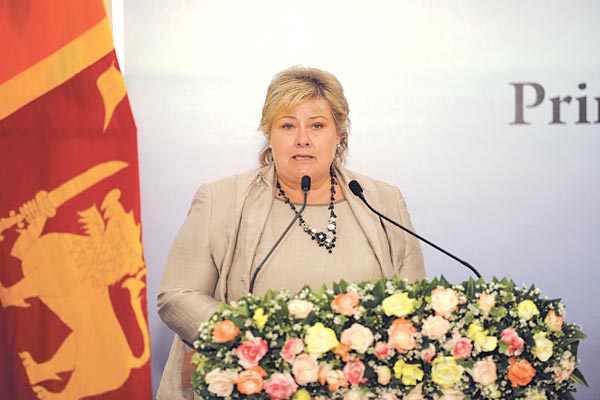
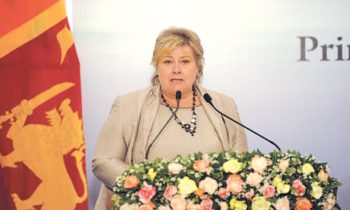 Co- Chair of UN Secretary-General Ban Ki Moon’s Sustainable Development Goals (SDG) Advocacy Group and Prime Minister of Norway Erna Solberg said that development priorities of Sri Lanka are in line with the United Nations Sustainable Development Goals (SDGs).
Co- Chair of UN Secretary-General Ban Ki Moon’s Sustainable Development Goals (SDG) Advocacy Group and Prime Minister of Norway Erna Solberg said that development priorities of Sri Lanka are in line with the United Nations Sustainable Development Goals (SDGs).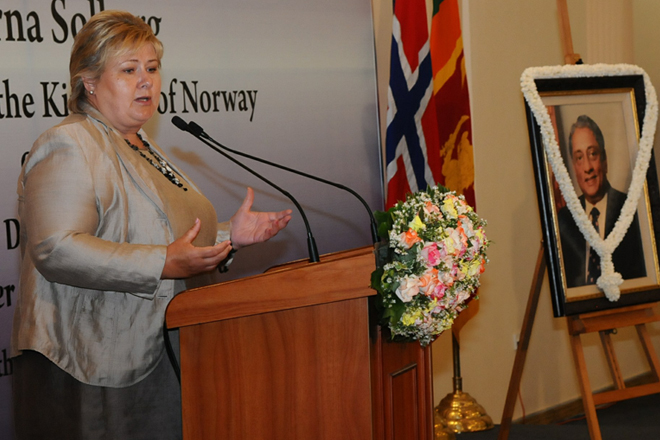
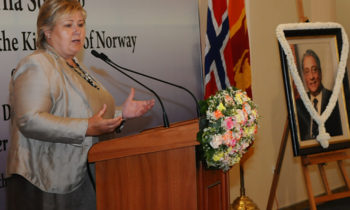 Norwegian funded research vessel is to visit Sri Lankan waters next year to carry out a marine stock assessment, Norwegian Prime Minister Erna Solberg said.
Norwegian funded research vessel is to visit Sri Lankan waters next year to carry out a marine stock assessment, Norwegian Prime Minister Erna Solberg said.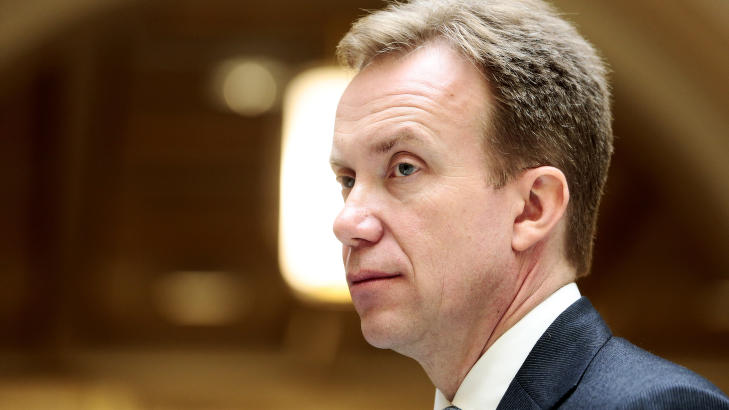
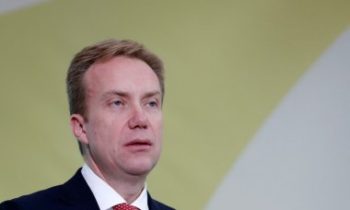 A consortium of Norwegian knowledge-based companies and academic bodies, organized by an Iranian energy management and consultancy company Energiring, held a seminar on the development of oil and gas upstream sector in Iran last week.
A consortium of Norwegian knowledge-based companies and academic bodies, organized by an Iranian energy management and consultancy company Energiring, held a seminar on the development of oil and gas upstream sector in Iran last week.
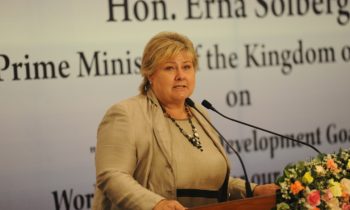 Lakshman Kadirgamar Memorial Lecture 2016 : Speech by Hon. Erna Solberg, Prime Minister of Norway.
Lakshman Kadirgamar Memorial Lecture 2016 : Speech by Hon. Erna Solberg, Prime Minister of Norway.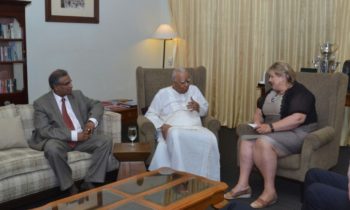 Lakshman Kadirgamar, who gave his name to this institute, lost his life in search of a path to peace. This tragedy tells us how costly and difficult achieving peace can be.
Lakshman Kadirgamar, who gave his name to this institute, lost his life in search of a path to peace. This tragedy tells us how costly and difficult achieving peace can be.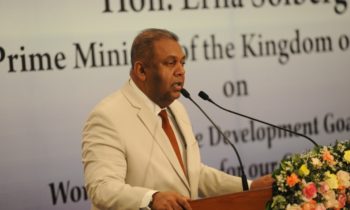 This institute is keeping Mr Kadirgamar’s vision for Sri Lanka alive by providing valuable analyses of the country’s strategic interests in a context of changing global realities.
This institute is keeping Mr Kadirgamar’s vision for Sri Lanka alive by providing valuable analyses of the country’s strategic interests in a context of changing global realities.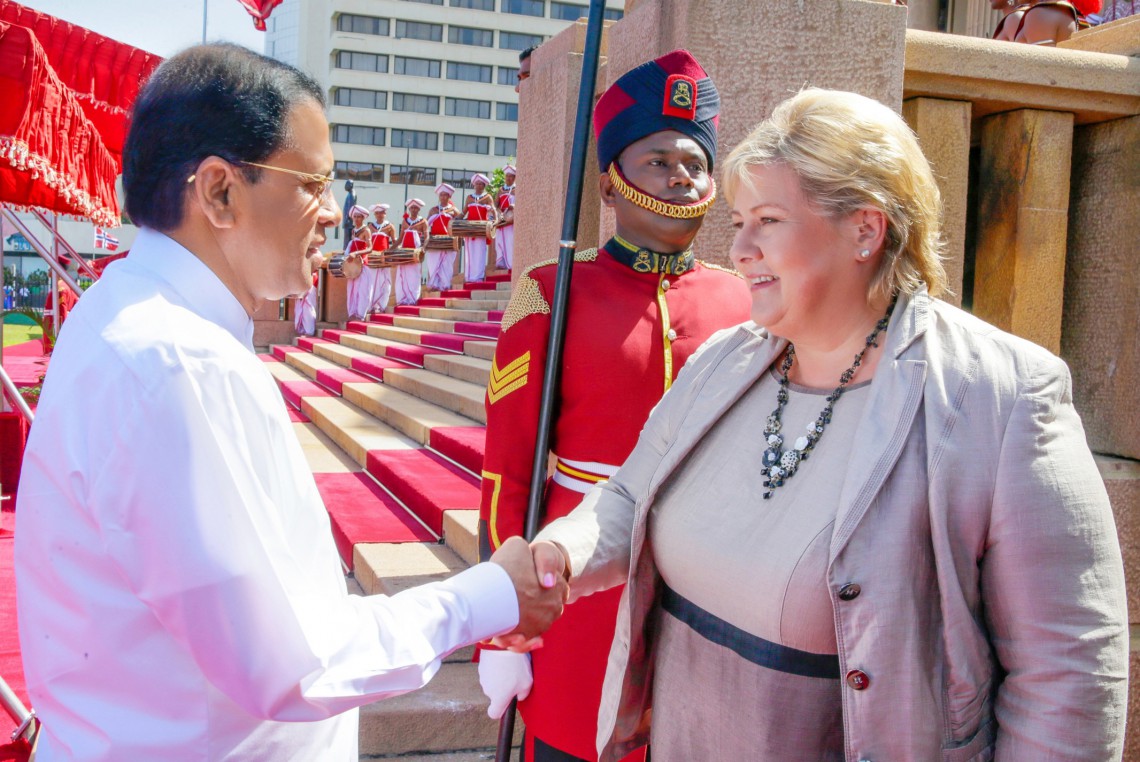
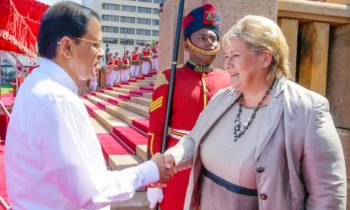 Norwegian Prime Minister Erna Solberg said today international responsibilities were crucial contributions not only to peace, but also to future prospects for development in countries seriously affected by conflict. Delivering the Lakshman Kadirgamar Memorial Lecture 2016, she said Sri Lanka had consistently shouldered international responsibilities since independence in 1948.
Norwegian Prime Minister Erna Solberg said today international responsibilities were crucial contributions not only to peace, but also to future prospects for development in countries seriously affected by conflict. Delivering the Lakshman Kadirgamar Memorial Lecture 2016, she said Sri Lanka had consistently shouldered international responsibilities since independence in 1948.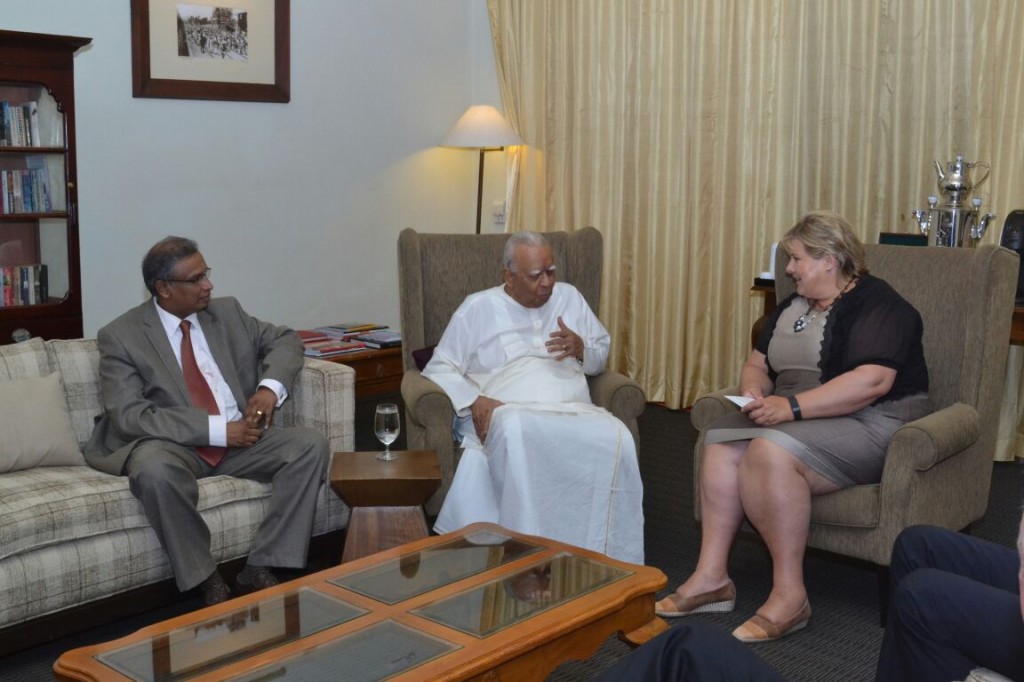
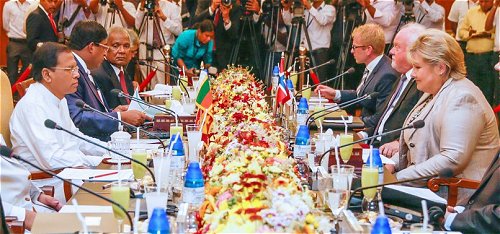
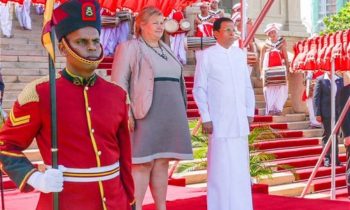 Sri Lanka and Norway will take steps to increase cooperation in several areas, including fisheries, information technology, energy, hydro and solar power as well as oil and gas exploration.
Sri Lanka and Norway will take steps to increase cooperation in several areas, including fisheries, information technology, energy, hydro and solar power as well as oil and gas exploration.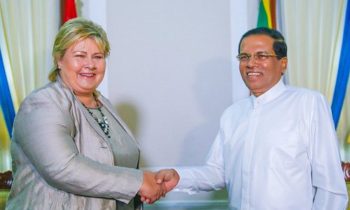 The President said that Sri Lanka would appreciate technical expertise from Norway to develop the fisheries industry in Sri Lanka as there are immense possibilities for growth in both sea fishing and inland fisheries. He said that Sri Lanka seeks foreign investments in export oriented industries such as garments, gem and jewellery, ceramic, plants, timber and medicine. He said that Minister Mahinda Amaraweera would visit Norway next week to discuss ways and means of expanding cooperation in the fisheries sector.
The President said that Sri Lanka would appreciate technical expertise from Norway to develop the fisheries industry in Sri Lanka as there are immense possibilities for growth in both sea fishing and inland fisheries. He said that Sri Lanka seeks foreign investments in export oriented industries such as garments, gem and jewellery, ceramic, plants, timber and medicine. He said that Minister Mahinda Amaraweera would visit Norway next week to discuss ways and means of expanding cooperation in the fisheries sector.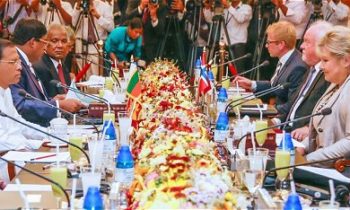 Ms Solberg said her government would take steps to bring together potential Norwegian investors and Sri Lankan partners. She added that as Sri Lanka has now reached the status of a Middle-Income Country, the focus would be to assist development and increase cooperation in trade, industry and business.
Ms Solberg said her government would take steps to bring together potential Norwegian investors and Sri Lankan partners. She added that as Sri Lanka has now reached the status of a Middle-Income Country, the focus would be to assist development and increase cooperation in trade, industry and business.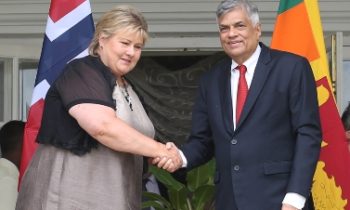 The Norwegian delegation, headed by Prime Minister Erna Solberg included Thorbjorn Gaustadsaether, Ambassador of Norway to Sri Lanka, Lasse Bjorn Johannessen, Director, South Asia, Ministry of Foreign Affairs of Norway, Borge Romsloe, Senior Adviser, Prime Minister’s Office of Norway, Espen Gullikstad, Special Adviser for Sustainable Development Goals and Prime Minister’s Office/Ministry of Foreign Affairs of Norway.
The Norwegian delegation, headed by Prime Minister Erna Solberg included Thorbjorn Gaustadsaether, Ambassador of Norway to Sri Lanka, Lasse Bjorn Johannessen, Director, South Asia, Ministry of Foreign Affairs of Norway, Borge Romsloe, Senior Adviser, Prime Minister’s Office of Norway, Espen Gullikstad, Special Adviser for Sustainable Development Goals and Prime Minister’s Office/Ministry of Foreign Affairs of Norway.